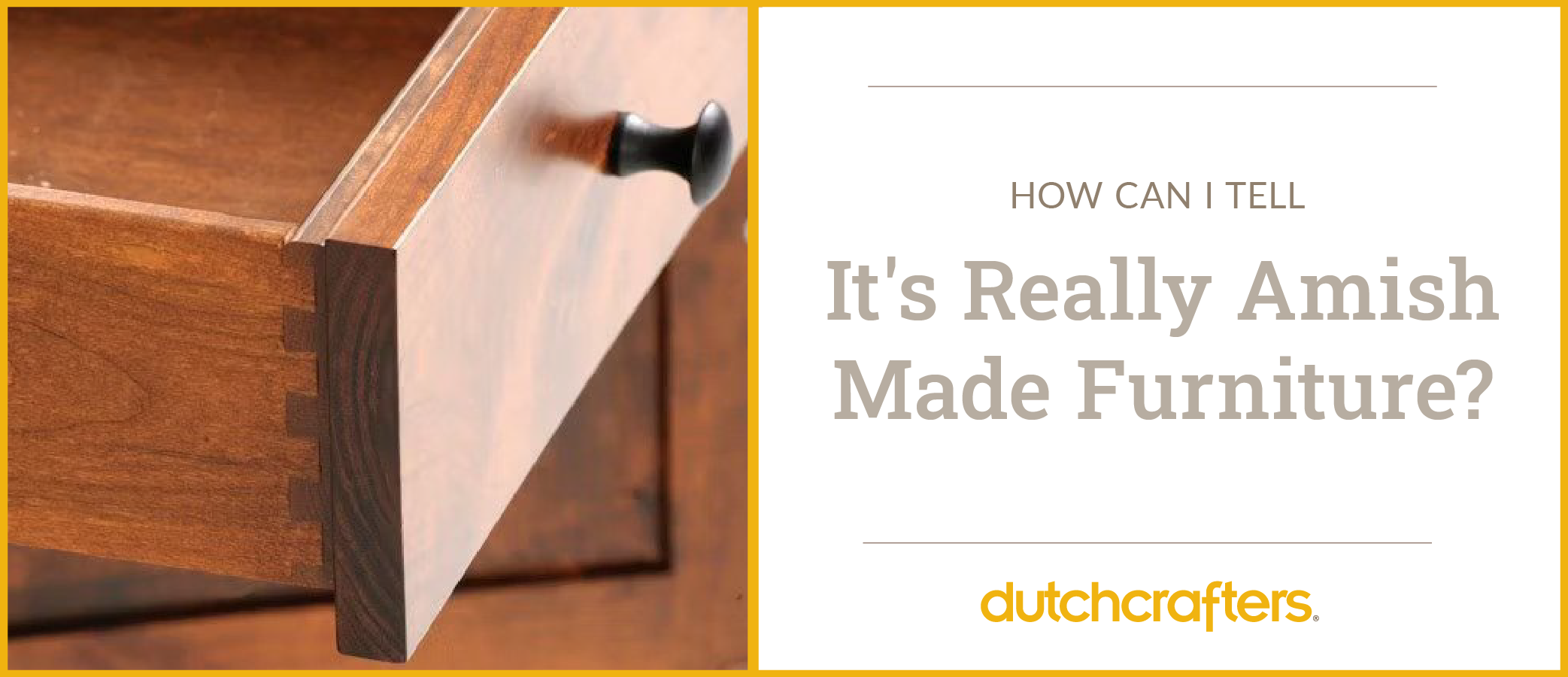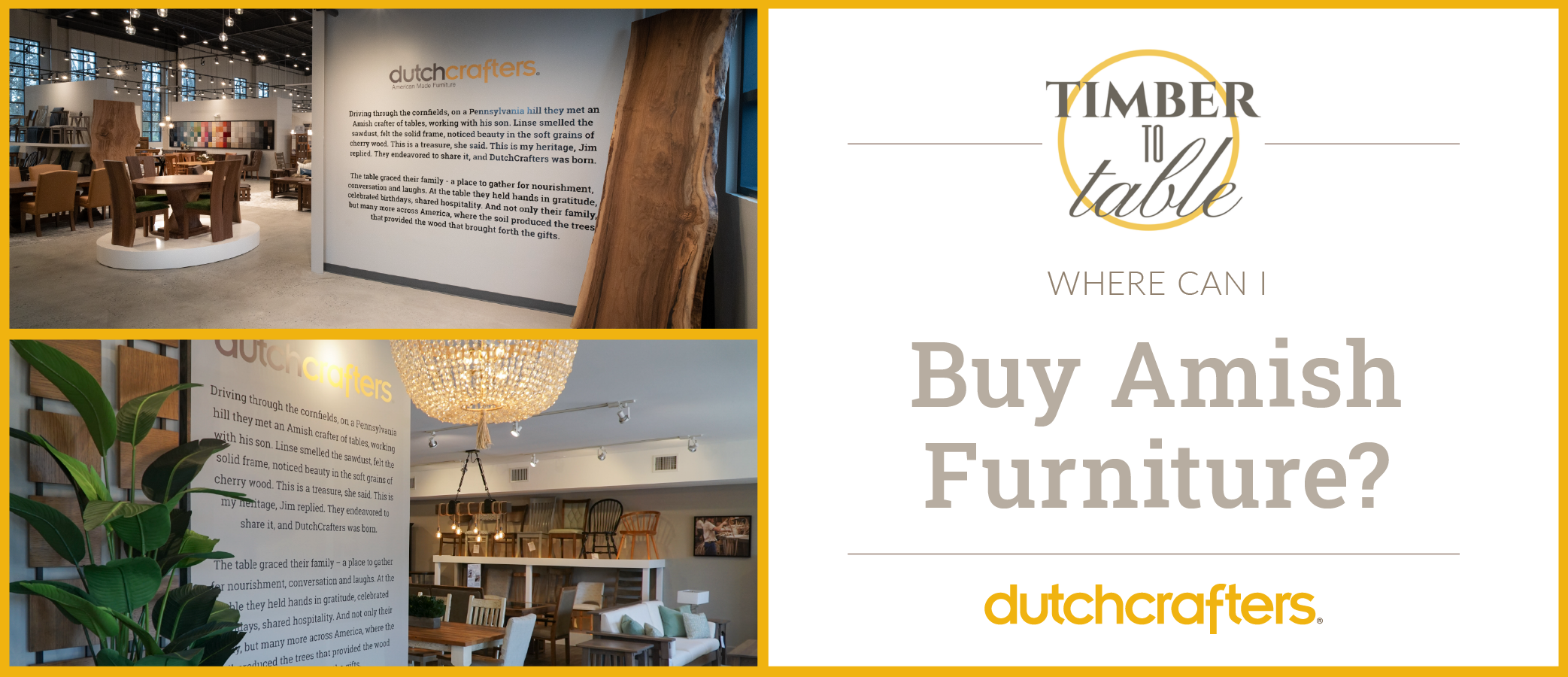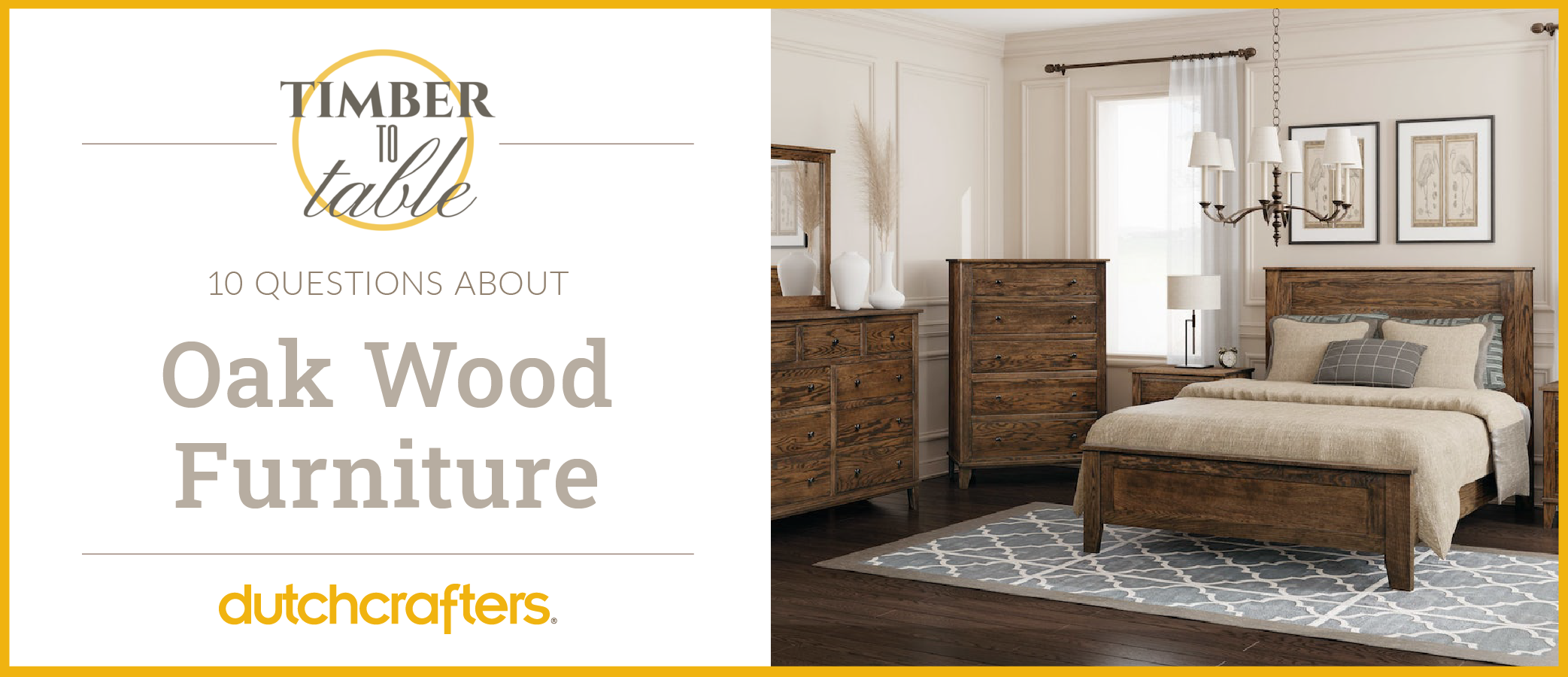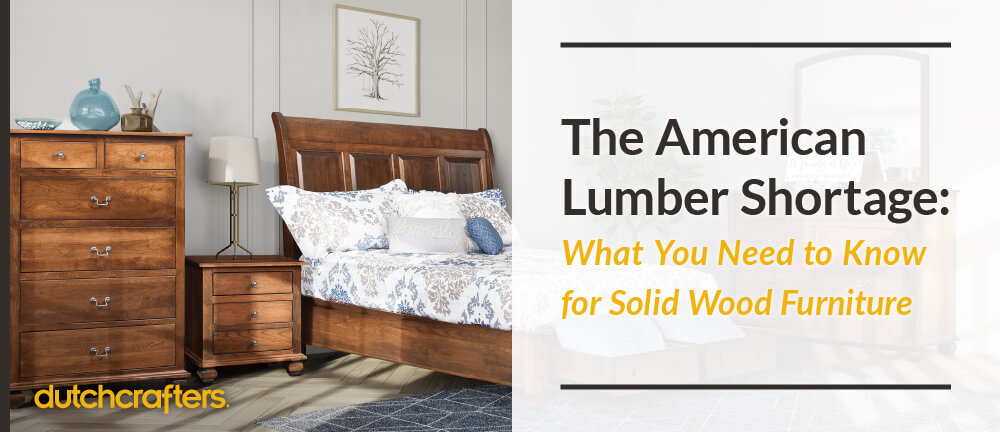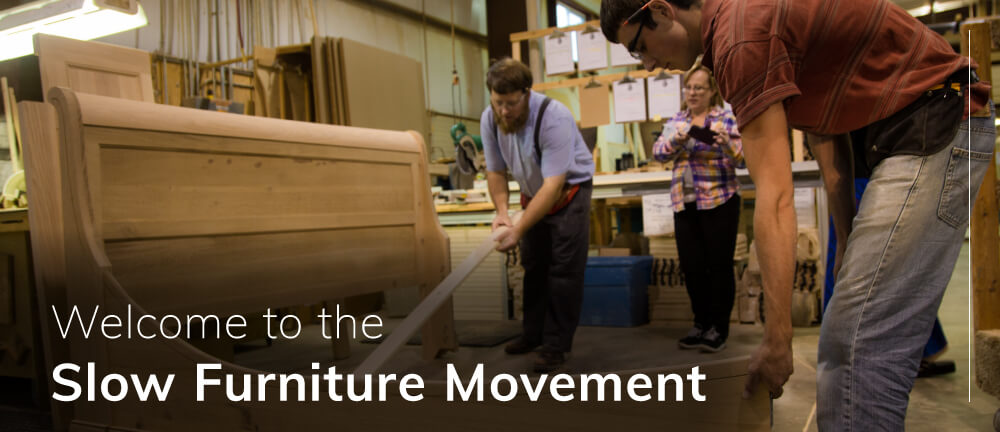
Welcome to the Slow Furniture Movement
“My middle name is Speed,” the Hare boasts in Disney’s 1934 version of The Tortoise and the Hare. The Hare tears through the race and kicks up lots of dust, but in the end he cannot compare to the slow and steady efforts of the Tortoise.
The moral lesson of the Tortoise and the Hare? You can be more successful by doing things slowly and steadily than by acting quickly and carelessly.
Amish furniture is made slow. It takes weeks that can add up to months. It won’t get there as quickly as the rushed and ready-made furniture that will break down at some point like the hare did. Instead, the tried and true process takes its time, believes in itself, and ultimately wins in the end by producing a superior product.
Are you rooting for the tortoise or the hare? Which race are you running?
With that in mind, Welcome to the Slow Furniture Movement.
Leading the way to best practices for the Slow Furniture Movement, CEO Jim Miller reflects on what’s behind a quality piece of furniture in this article he wrote for LinkedIn.

Slow Furniture – Good for You, Good for the Planet
By Jim Miller, CEO of JMX Brands and DutchCrafters
Published on LinkedIn, September 24, 2019.
A few years ago, I read three books in quick succession, and they collectively changed my life. The books were In Defense of Food by Michael Pollan, Savor by Thich Nhat Hanh, and Four Fish by Paul Greenberg. In a nutshell, Pollan helped me to think differently about my relationship to food and its impact on my health. Thich Nhat Hanh got me to slow down and taste what I put in my mouth and to develop a stronger awareness of the spiritual dimensions in nourishment and my connection to the world. Greenberg inspired me to be more intentional about choices I make in selecting the seafood I love, and the impact of those choices on ecosystems and the health of the planet.

I’m far from a perfect eater, but the gifts of these authors brought me to a place where I’m generally doing better on the dietary front – doing my body and soul a big favor. At the same time, I’m making decisions that honor my relationship to the food sources around me and have significantly reduced harmful impacts on the environment through more sustainable decisions.
In contrast to fast food – instant cheap meals that are often eaten on the run or in front of a television, with little consideration for nutrition, environmental impact, gratitude, or even taste, I’m learning about and experiencing the benefits of slow food. The basic practice of putting my fork down between bites has been both challenging and very rewarding. In this simple act, I find space to appreciate the mystery of sun, rain, earth and water that has made its way to my mouth through the hands of farmers, pickers, drivers and local grocers like Detweilers Farm Market in Sarasota. Breathing in, I receive sensory delights and nourishment. Breathing out, I am thankful for the meal.
Slow food has me thinking about other dimensions of my life. I’m more aware and intentional about the value and quality of things I consume, the ingredients of what goes into them, the experience I have utilizing them, and the impact my decisions have on producers and planet. It’s not always easy to be intentional. Frankly, sometimes it feels like too much effort. But learning to think more conscientiously has brought benefits of beauty and value. Instead of buying cheap products that are quickly disposed of, I’ve learned to pay a little more on purpose to reflect value (thanks, Michael Pollan), appreciate that which I consume (thanks, Thich Nhat Hanh) and reduce my impact on the world around me (thanks, Paul Greenberg).
I’m extremely fortunate because I also make a living bringing other people the kind of products that is consistent with what I want for myself. I’ve begun talking about slow furniture to describe what we deliver at DutchCrafters. It’s an ironic product for an ecommerce company: in contrast to the quick, cheap, disposable furniture that will be pulled off the warehouse shelf by an underpaid worker and delivered tomorrow to your home in a box (with plenty of packaging), at DutchCrafters we sell slow furniture.
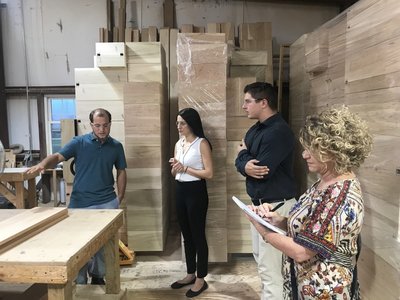
Our furniture does not ship the same day. When our customers place an order, we carefully prepare a purchase order that is faxed (yes, that’s still a thing) to one of the small, family-owned Amish wood shops in Indiana, Ohio or Pennsylvania that we have worked with for nearly two decades. The hardwood, virtually all of which comes from sustainably managed forests in the region, is then carefully selected and cut into panels. It is shaped, sanded, and worked with callused hands and careful eyes that feel and watch for consistency in grain and durability. While there are certainly machines that bring efficiency and precision, the human element is clear. Last week I visited one of our bedroom furniture makers in Ohio and found an Amish preacher making the headboards as he prepared his sermon for the week, praying and contemplating as he worked.
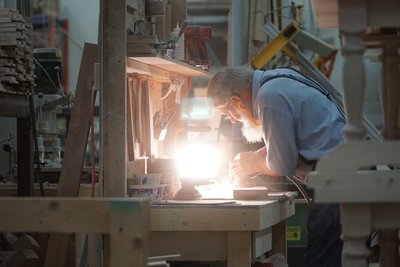
The process takes weeks. It is a labor of love – conscientious, intentional, authentic. The end result is furniture that is built to last – characterized by a quality that is passed from one generation to the next. It is not destined for a landfill, but for the next generation – meant to be handed down. It is life-giving – beautiful, practical and valuable.
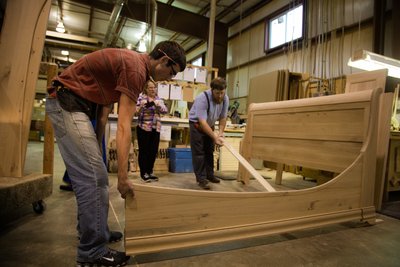
Our environmental impact is lower than one might think when considering hardwood furniture. The wood is sustainably harvested and isn’t transported across the ocean. Because the Amish produce very little waste and consume minimal energy, resources are conserved. The vast majority of our furniture is blanket-wrapped, which eliminates packing materials. And of course, people don’t throw our furniture away. In contrast to fast furniture, it lasts for decades – reducing consumption and less money over the long haul. That is why last Earth Day, I pledged membership with the Sustainable Furnishings Council as an expression of our environmental stewardship.
We’re pioneers in a movement – a slow furniture movement. I hope you consider DutchCrafters next time you find yourself in need of furniture. It will be good for you and good for the planet.
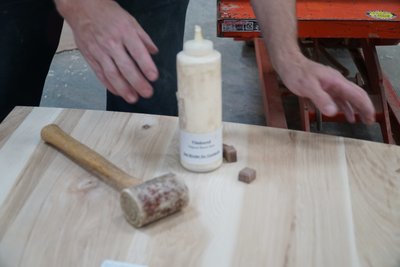
I’m humbled when I think of the amount of disposable furniture that hasn’t been thrown away because of the choices our customers have made over the years. I’m humbled too, when I think that nearly all of the furniture we’ve delivered since 2003 is still an integral part of the lives of tens of thousands of our customers across America. Every day, our customers awake from a good night’s sleep in our beds and get dressed in front of the dressers we sell – appreciating the functionality of soft-close drawers. Every day, our customers spend their days working at our solid wood desks and welcome their own customers around our office furniture. Every day, our customers relax in our sustainable and comfortable poly outdoor furniture, cognizant of the low-maintenance and long-lasting characteristics. Every day, those customers give thanks at DutchCrafters authentically solid wood dining tables – hopefully enjoying a nutritious, delicious, slow-food meal.


